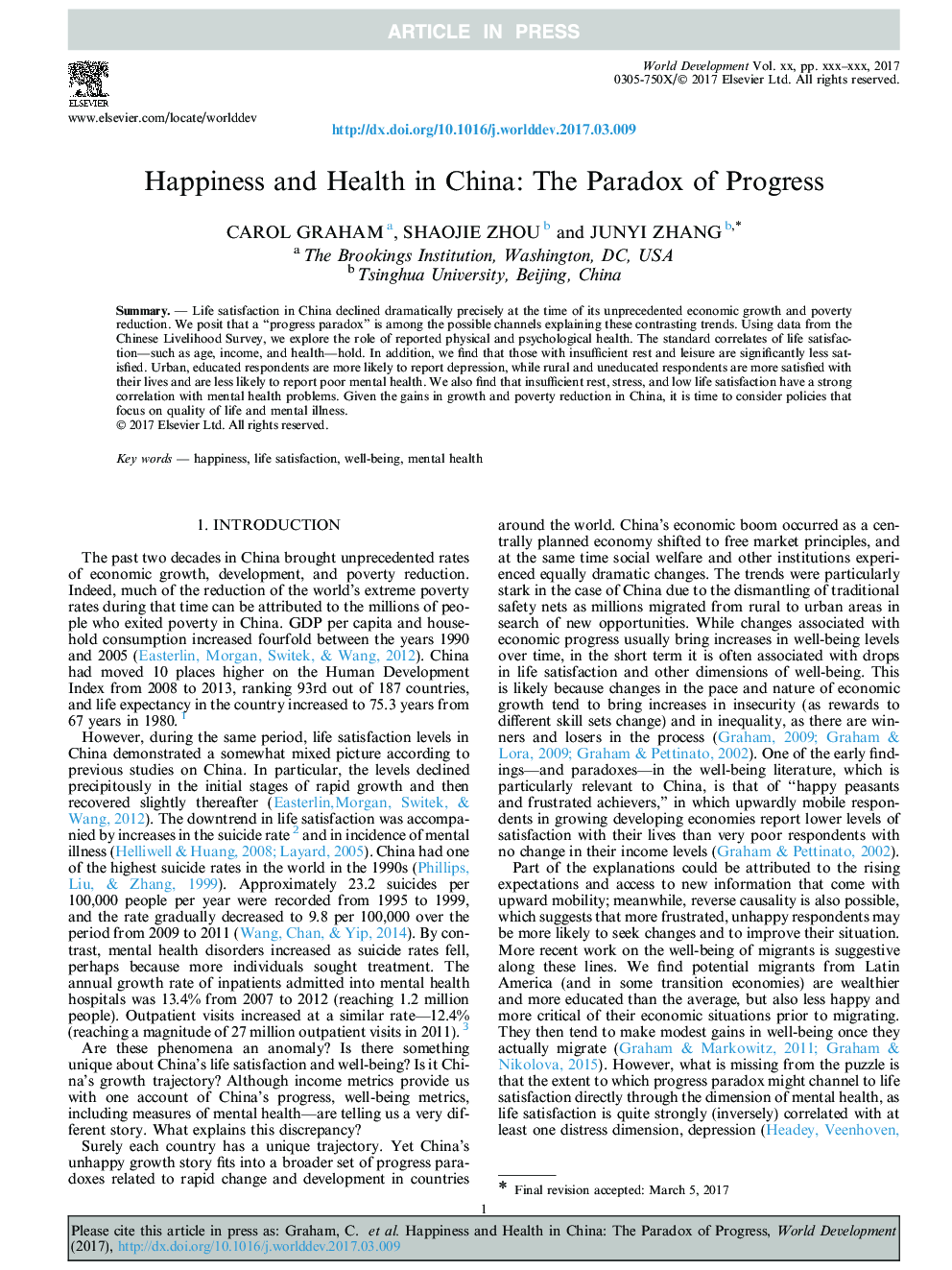| Article ID | Journal | Published Year | Pages | File Type |
|---|---|---|---|---|
| 5105059 | World Development | 2017 | 14 Pages |
Abstract
Life satisfaction in China declined dramatically precisely at the time of its unprecedented economic growth and poverty reduction. We posit that a “progress paradox” is among the possible channels explaining these contrasting trends. Using data from the Chinese Livelihood Survey, we explore the role of reported physical and psychological health. The standard correlates of life satisfaction-such as age, income, and health-hold. In addition, we find that those with insufficient rest and leisure are significantly less satisfied. Urban, educated respondents are more likely to report depression, while rural and uneducated respondents are more satisfied with their lives and are less likely to report poor mental health. We also find that insufficient rest, stress, and low life satisfaction have a strong correlation with mental health problems. Given the gains in growth and poverty reduction in China, it is time to consider policies that focus on quality of life and mental illness.
Related Topics
Social Sciences and Humanities
Economics, Econometrics and Finance
Economics and Econometrics
Authors
Carol Graham, Shaojie Zhou, Junyi Zhang,
